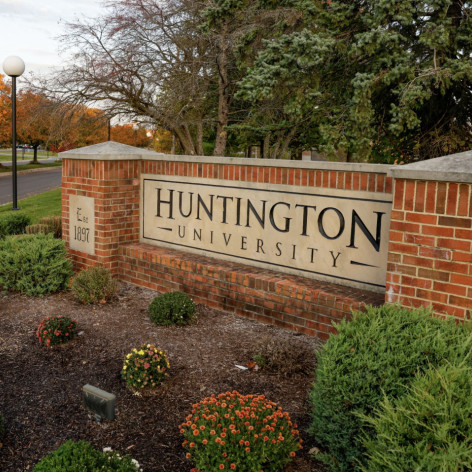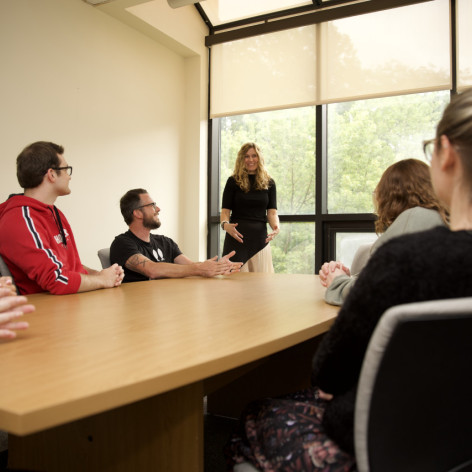A Huntington professor’s archaeological odyssey
FOR RELEASE: Thursday, October 13, 2011
| Photo by Ellie Bogue of The Fort Wayne News-Sentinel Gobelki Tepe is one of the images Mark Fairchild, professor of Bible and religion, took on his May three-week trip to Turkey. Fairchild has been documenting the ancient archeological sites of Turkey for the past 15 years. |
Professor and chair of the Department of Bible and Religion, Fairchild has an interest in the ruins of ancient temples and churches. He recently returned from a three-week trip to eastern Turkey, where he photographed 30 sites of the Urartu civilization and the Commagene kingdom dating back to the 5th and 6th centuries B.C.
On his trip he shot 10,500 photos and will spend the rest of the summer cataloging the images, researching and writing about the sites. Although Fairchild said modestly he is merely taking the pictures to use in the classroom and for research, he is in fact preserving these historical sites through photographic documentation.
Turkey is one of the few untapped archaeological countries remaining in the world, Fairchild said. For years Turkey was unreceptive to archaeologists, but now with an easing of regulations, an interest in joining the European Union, and trying to increase its tourism revenues, it is allowing more exploration of its numerous sites.
"They are sitting on a gold mine in tourism; they are just now realizing what this can do in turning the country around economically," Fairchild said. "It's new, it's fresh and it's undiscovered. Most of the sites I go to I am alone at; there are no tourists."
Fairchild has visited more than 200 ancient sites in the past 15 years. He funds the trips himself, with a little help from others here and there. He travels there at least once, sometimes twice, a year, and he frequently takes student groups with him. Sometimes other organizations contract him to lead a group.
"Turkey is a land that is absolutely loaded in terms of biblical significance," Fairchild said. The book of Revelations was written to seven churches, all in Turkey.
In eastern Turkey, 30 miles from the Syrian border is the Gobekli Tepe, which some archaeologists view as one of the most important sites in the world. The temple was the cover story in the June edition of National Geographic and has been written about in Newsweek. It is believed to be the world's first temple, built 11,600 years ago. It's a series of 20 circles of monolithic stones 18-20 feet tall that are carved slabs of limestone. Animal and human figures are raised out of the limestone.
The temple is believed to have been built during the Neolithic period, when only stone tools were available, meaning its raised stone carvings were done with stone tools. The floor is terrazzo, and at one time, it probably had a roof. At a time when hunting and gathering was the way of life it is thought to be the first temple built that caused people to gather in an urban area.
In the National Geographic article, author Charles Mann said in the past it was thought agriculture gave rise to cities, but now the ancient temple is debunking this theory, making experts think the urge to worship may have been what triggered civilization.
Despite the wealth of ancient sites in Turkey, most of the sites remain undeveloped.
"They have so much and not enough money to preserve what they've got," Fairchild said. Some of the ruins have been illegally dug, and some have been defaced by graffiti.
"I believe over the next 200 years, the great archaeological finds and biblical discoveries are going to come out of Turkey. There is no question in my mind," Fairchild said.
He has found the people of Turkey very hospitable. They have fed him, jumped into his car to direct him to ruins and then spent hours taking him through remote sites. Turks have even let him borrow their cars to get there.
"How many Americans would do that?" Fairchild asked.
Travel in Turkey is inexpensive, except for gasoline, which runs as high as $11 a gallon. Fairchild goes through a lot of gas on his travels, as many of the sites are off the beaten path.
"Some of the roads look more like cow paths," he said. "I think the car rental people hate me because of the roads I take their cars on," he said with a laugh.



